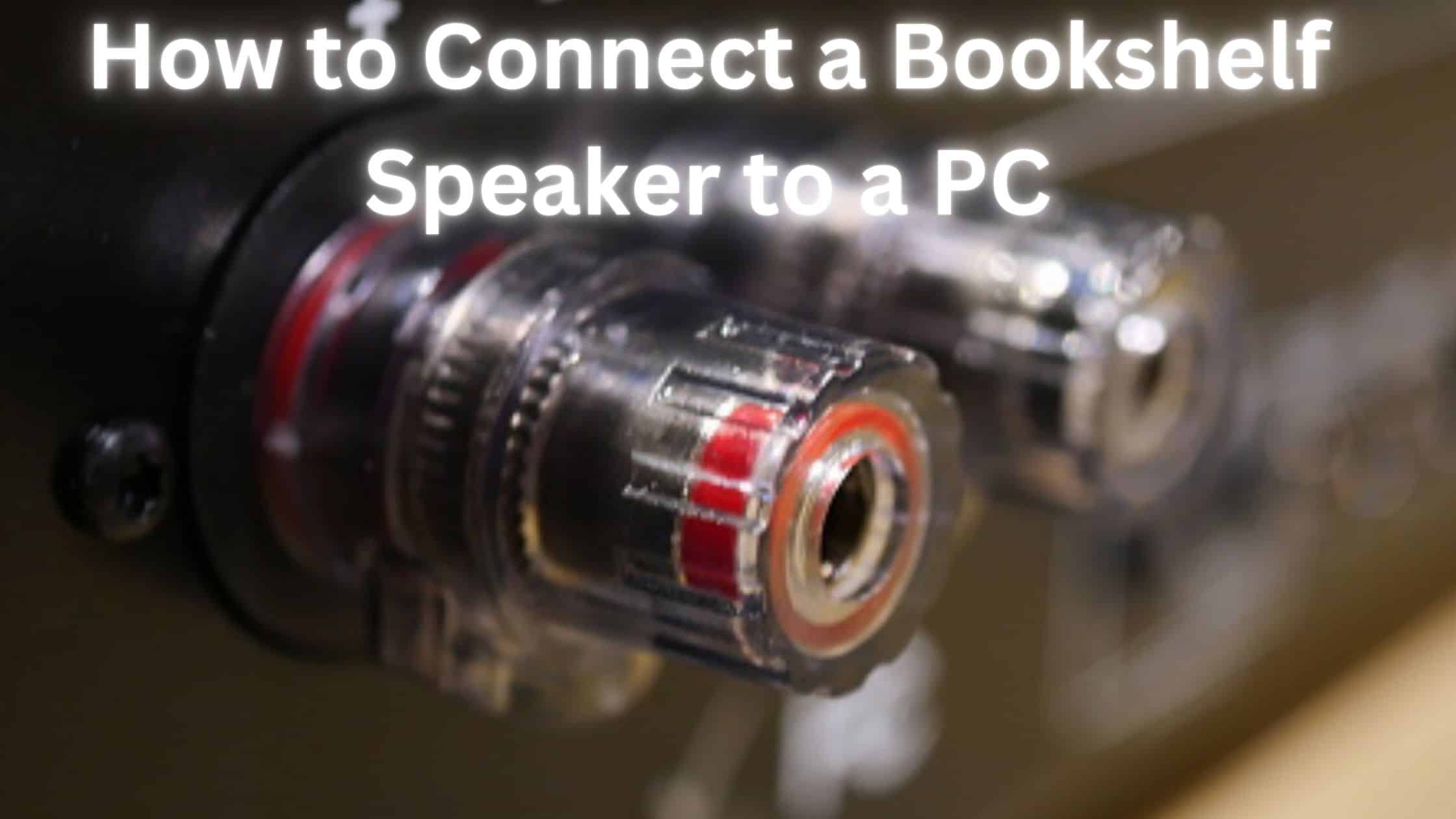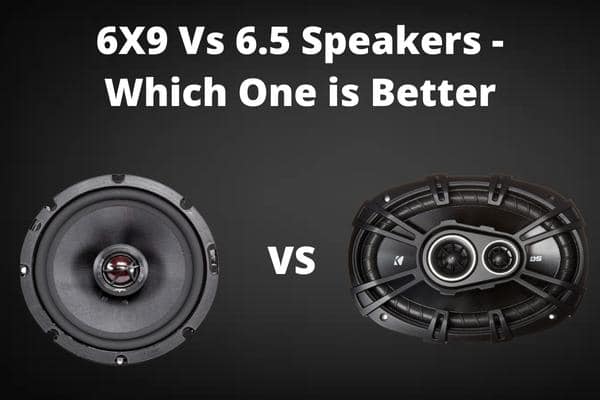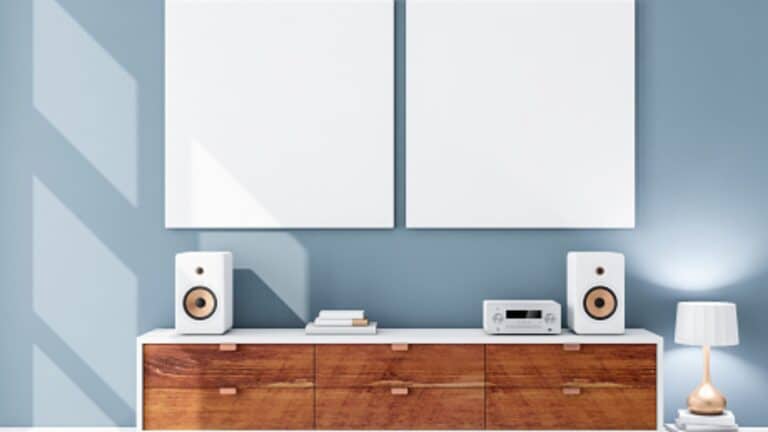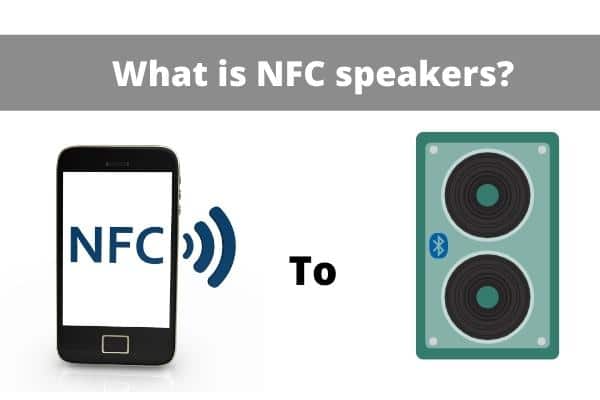
So you just got a new set of bookshelf speakers and want to know how to Connect a Bookshelf Speaker to a PC? Not a problem! In this guide, we’ll show you how you can connect your new bookshelf speakers to your PC.
Don’t worry; connecting your bookshelf speakers to your PC is a pretty simple process. All you need is a 3.5mm audio cable and a few minutes of your time.
We’ll start with the basics and work our way up to more advanced methods, so whether you’re a total beginner or just need a refresher, all you need is to follow these guides step by step. But before we dive into the guide on how to connect your bookshelf speaker to your PC, it is necessary you know the components required. So let’s get started!
Things you’ll need to connect a bookshelf speaker to a PC
To connect a bookshelf speaker to a PC, some components are required. The lists of these components needed are explained below:
- PC
Your laptop, also known as a PC, is one of the major devices you’ll need to connect your bookshelf speaker too. Although so many music applications are installed on your pc, not all give better sounds. To eradicate this problem, you must ensure you have the right application for music installed correctly on your Pc to enable it to work properly.
- Bookshelf speaker
Since they lack built-in amplification and typically contain two drivers—a woofer and a tweeter for the low and high frequencies, respectively—bookshelf speakers are referred to as passive speakers. You will need a bookshelf speaker to change the electric signal from your PC or laptop to a sound that will sound pleasing to your ears at the end.
- 3.5mm to RCA cables
The 3.5mm to RCA cables are the essential and significant part of the connection. White and red cables are the most common colors for audio device connections. It connects all parts and serves as the medium for the flow of electric signals.
- A good amplifier
You’ll need an external desktop amplifier to power your bookshelf speakers. Keep in mind that the amplifier supplies the electricity needed to operate the bookshelf speakers. The amplifier will also help transform the electrical signal from your PC into sound.
Your bookshelf speakers need to be powered by the amplifier. The speakers cannot be supported solely by the PC’s power supply.
In addition, you’ll need an audio input on your PC. This could be a port on the back of your PC, or it could be an integrated audio card. You will need a USB audio adapter if your computer doesn’t have any ports that the audio cable can plug into. As a result, your bookshelf speaker will recognize the analog signal that has been converted from the digital audio signal coming from your computer.
Now that you’ve gathered everything needed to connect your bookshelf speaker to your PC, it’s time to start.
Things to note when connecting your bookshelf speaker to your PC
- Always check the speaker’s owner’s manual to ensure it’s compatible with a PC.
- Always use the appropriate cables. Many bookshelf speakers come with a cable specifically designed for connecting to a PC. If yours doesn’t, or if you need to buy an additional one, be sure to get a stereo RCA cable. This is the most common type of audio cable, and it will work with most bookshelf speakers.
- Always keep in mind the maximum power rating of both your speaker and your PC. The speaker’s power rating is how much power it can handle safely, and the PC’s power rating is how much power it can output. If either one is exceeded, you could damage your equipment.
The process of connecting your bookshelf speakers to your PC
Okay, so you’ve got your new bookshelf speaker and are excited to start using it. You can’t wait to use them to boost your PC audio experience. But how do you connect them?
Although the procedure is quite simple, there are a few things to consider. You can connect your bookshelf speakers to your computer using the procedures below:
To begin with, make sure both your bookshelf speaker and PC are turned off.
- Connect your bookshelf speaker to the amplifier
The process begins by connecting your bookshelf speakers to the amplifier by placing the wires in the appropriate terminals. Both speakers have separate speaker wires for each.
The left or right bookshelf speaker will be connected to each wire.
To do this, the left speaker wire should be used to connect to the amplifier’s left terminal. To do the same, take hold of the right speaker wire’s free end and insert it into the amplifier’s right terminal.
Always ensure to take note of the marking that has been made on the amplifier denoting the left and right sides. This help to achieve the right wire connection.
- Connect your PC to the amplifier.
Remember you’ve already connected your left and right bookshelf speakers to the amplifier. Now, you are going to repeat the same method for your PC.
You’ll need to use 3.5mm RCA wires to perform this connection. Using the two connectors, you simply take the 3.5mm RCA cable and connect it to the left and right RCA channels on the desktop amplifier. Since it is a red-and-white cable, the red cable should be connected to the red port of the amplifier. The same method applies to the white cable and port.
Connect the end of your AUX cable to your PC. There should be a confirmation that your PC accepts your RCA cable.
- Connect your power cable to the amplifier
After you’ve confirmed that your PC has accepted your cable, you need to connect your power cable to the amplifier. Connect your plug to the power duct and switch on your wall socket to turn on your PC and speaker.
- Confirm your connection by checking Your connection
Open up your music player of choice and start listening to see if your bookshelf speaker has been successfully connected to your PC.
Conclusion
In short, To connect a bookshelf speaker to a PC is a straightforward process that requires a few things that are likely already in your possession. With just a speaker, some connecting wires, and your computer, you can listen to high-quality audio in no time. The procedure is not challenging, but to prevent equipment damage, it is crucial that you strictly follow the instructions. Your bookshelf speakers’ wonderful sound can be enjoyed for many years if you are patient enough and pay attention to details.
Frequently Asked Questions
Do bookshelf speakers work well for PC?
Yes, bookshelf speakers are good for your PC. It is recommended that you get strong bookshelf speakers if you want to truly experience the best audio on your PC.
Will I need anything else to connect my bookshelf speakers to my PC?
No, you don’t need anything else to connect your bookshelf speaker to your PC. A speaker wire connects the left and right channels and an audio cable from the subwoofer to the PC.
Can I connect my bookshelf speaker directly to my PC?
Yes, you can connect your bookshelf speaker directly to your PC. All you need to do is ensure the proper placement of both speakers.






